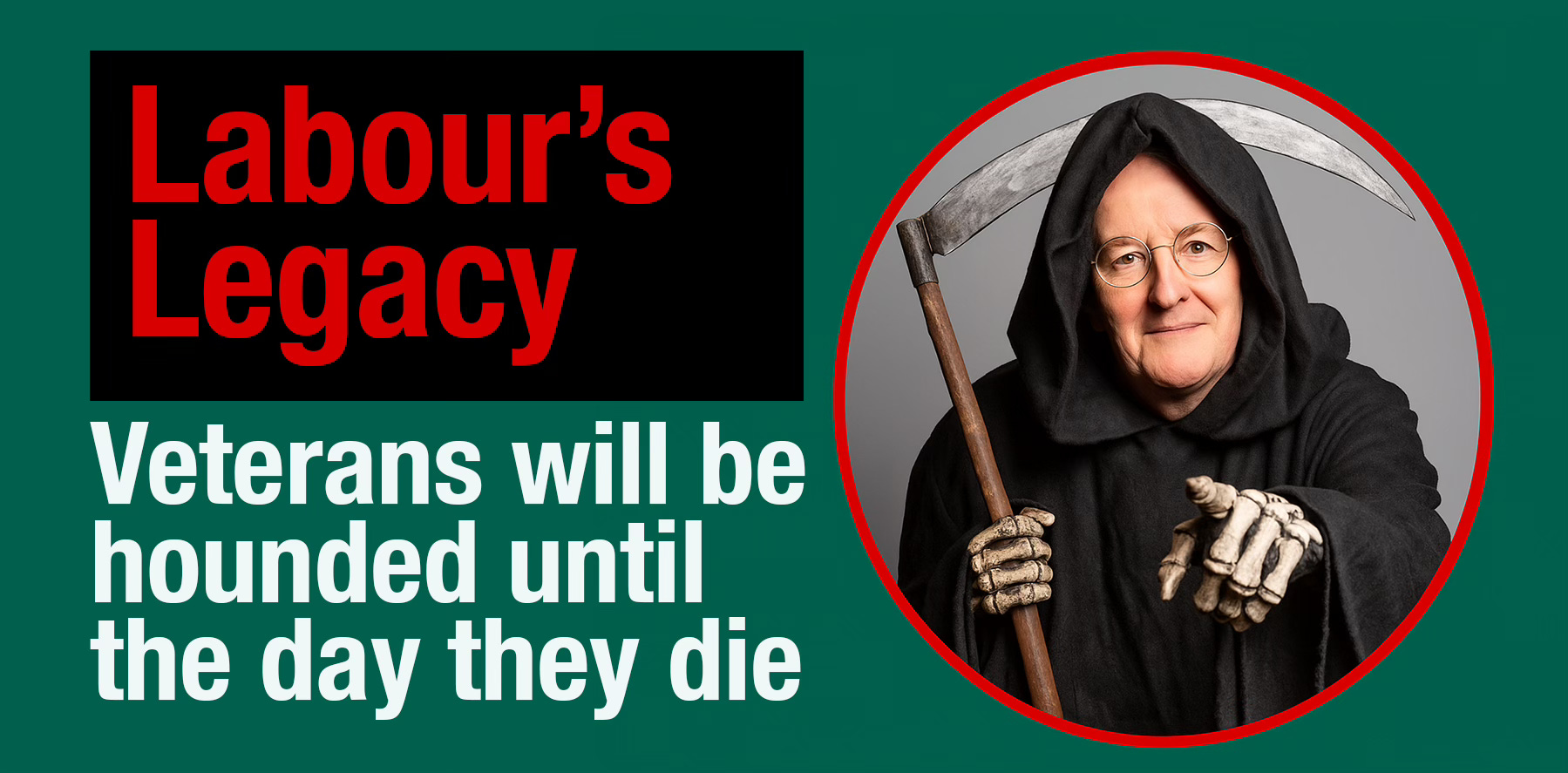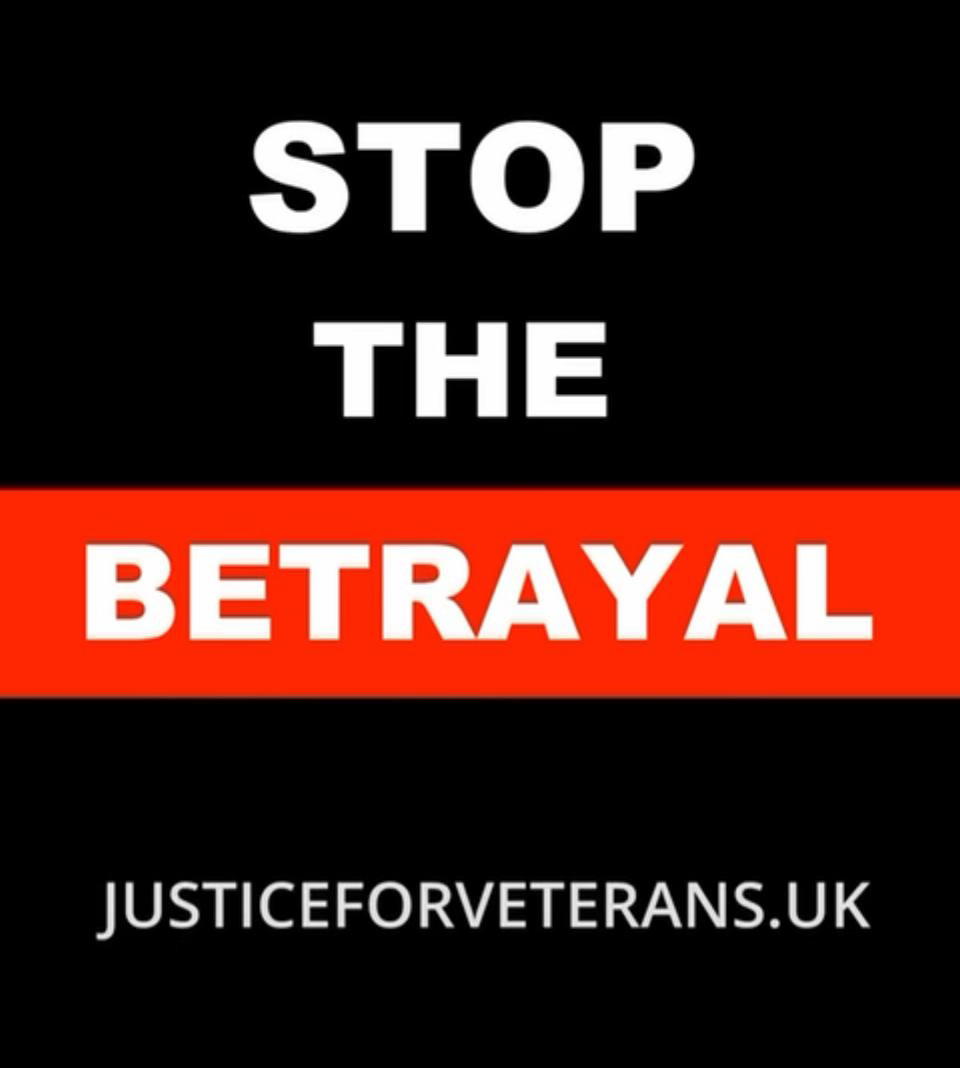No New Evidence. No Closure. Just Old Agendas.
Veterans have watched the legacy debate twist into something that looks like justice but feels like politics in a wig. Here’s what the Government’s new UK–Ireland legacy framework really means.
Hilary Benn, Secretary of State for Northern Ireland, today announced a Joint Framework agreed between the UK Government and the Government of Ireland on the legacy of the Troubles.
It is nothing short of a promise to continue the betrayal of veterans and further support of the IRA’s attempts to rewrite history.
The sales pitch vs the truth
Ministers say reforms will bring “closure” for families. In reality, they’re scrapping immunity, reopening civil routes and retooling the investigations machine with a fresh five-year clock. Prosecutions remain technically possible, hearings expand, and disclosure widens. That isn’t closure. It’s a reset.
If there’s new evidence, fine — take it to court. But most Operation Banner cases have been picked over for decades. Re-litigating the same incidents without fresh material isn’t justice. It’s process as punishment.
What changes — in plain English
Immunity dumped; civil claims back: The ban on new civil actions goes, and the old “immunity” approach is binned.
ICRIR rebadged as a “Legacy Commission”: More powers, more oversight boards, more process.
Two tracks: Either full criminal investigations (if evidence is there) or judge-led, inquisitorial hearings that end with a “balance of probabilities” report for families.
Wider disclosure: Narrower definitions of “sensitive” material, fewer ministerial levers to block release, and appeals if information is withheld.
Clock reset: A new five-year window to refer cases. Transition in months, not years — then we start again.
Sounds firm. Feels endless.
Cross-border pieces
ICIR (pilot): A joint voluntary information-retrieval body—inadmissible in court—to give families extra answers. Three-year pilot, jointly funded.
Garda unit + cash: Ireland to stand up a dedicated Garda legacy unit and contribute €25m over three years for victim participation/representation. Both states to legislate for maximal mutual assistance.
There’s no number anywhere for the UK’s total spend on the reformed Legacy Commission, the inquisitorial mechanism, inquests, or the transition — only timelines and structures. But, this Government has no problem chucking away taxpayer’s money to be hoovered up by lawyers.
Who pays the price
Let’s talk about who actually feels this on their doorstep.
Elderly veterans: Men now in their seventies and eighties are getting fresh letters about incidents examined again and again. Some are dealing with this on oxygen, on morphine, or on their way to hospice care.
Families of victims: They’re promised “answers” but too often get years of paperwork and no finality. Hopes raised. Hopes dashed. Repeat.
“Justice is a verdict — not an endless process.”
Justice, yes. Witch-hunts, no.
No one is asking for a free pass. If war crimes or other wrongdoing can be proved, then prove them in court. Charge, try, convict. But stop pretending that reheating old cases without new evidence is about truth. It isn’t. It’s politics — and it corrodes trust.
And let’s be honest: the rank-and-file are the easiest targets. Those who set policy rarely see the inside of an interview room. That’s not equality before the law.
The “closure” line doesn’t add up
Ministers claim the reforms put victims first. If that were true, there would be a clear end-state: evidence tested, verdict reached, chapter closed. Instead, we’re promised more hearings, broader disclosure, cross-border committees — and another ticking clock. The destination isn’t justice; it’s permanent process.
Why you should care (even if you never served)
Fairness: Today it’s legacy soldiers. Tomorrow it could be any public servant told to make split-second decisions and second-guessed decades later.
Security: If the state won’t back those who act under its orders, why would anyone step forward next time?
Truth: A history written by process and press releases isn’t truth. It’s a narrative war — and Britain is losing it.
What would be sensible
Evidence-led prosecutions only. No fresh evidence, no fresh case.
Stop duplicate pursuits. One pass at the facts, not five.
Follow the chain of command. If an operation was unlawful, look at those who authorised it — not just the private on the ground.
Time-bound finality. A real sunset clause that closes, not resets, the clock.
The bottom line
This isn’t justice; it’s politics in court clothes. Reforms that promise “closure” will keep wounds open — for families and for those who served. We should demand real accountability where there’s proof, and the courage to say “enough” when there isn’t.
No new evidence. No closure. Just old agendas. And elderly veterans hounded to their deathbeds while the architects of policy stroll on. Britain can do better than that — and it must.




Veterans deserve honour not Labour's endless persecution !
Disgraceful